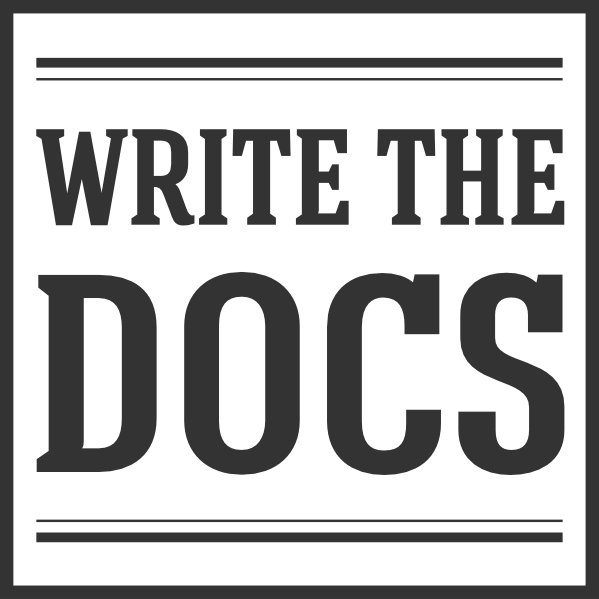Interview with Christian Bahnweg¶
Chris is a software engineer who found his current job through the Write the Docs community.
Key takeaways¶
- Connect with people, and make an effort to be open opportunities other people may have.
- Building a portfolio is important to showcase your skills.
Chris had a background in communications before becoming a software engineer. Before taking his first job as a software engineer, he worked doing copywriting and marketing.
How did you end up moving from marketing to software engineering?
So that kind of came from this community. What actually happened was that I was doing webdev in my spare time, and a friend of mine that I met on here - Alex Ball - was going for interviews with Gitlab and Google, and I said to him kind of jokingly, “Hey, ask the Google guy if he has any junior engineering positions open.” And he said that they didn’t. but his buddy’s company had engineering positions open. So I reached out to them and had a Skype interview. I talked to them about the projects I had built, some of the documentation I had written. And they said, “We really like you. We’ll get back to you with some feedback, and we’ll go from there.” So I thought was that wasn’t good. They’re going to come back, and I won’t have the job. Because, you know, when they say that they have feedback, that’s never a good sign. So they called me later that day. And they said, “Yeah, we want to offer you the job.”
How did you meet Alex and get involved with the community?
I got into the community before I met Alex, searching for jobs in general. I would apply for whatever looked good as a junior writer job, because that’s what I was looking for at first, a way to leverage the love of the internet and the love of creating things on the internet with my writing skills. And I kind of got disheartened a little, because there didn’t seem to be a lot of junior writer jobs out there, at least from the community. Everything seemed to be either a mid-tier or a senior-tier position. So I went back to the drawing board and considered getting another degree in software engineering to make myself more marketable as a tech writer. Thankfully it didn’t have to come to that. That was my plan, and I’m trying to remember how I met Alex. I think he had pointed something out to me, and we got to talking and we became friends. He would update me on his job search, because he was also searching for a job at that point. I would ask about his job search and provide advice where I thought it was appropriate. And the story kind of came down the way I explained before.
Were you getting help from other members of the community?
I was getting advice from a lot of people. I would say the career-advice channel is really helpful if you’re trying to get help in software engineering or technical writing. But it’s also kind of helpful to pick someone and establish a kind of camaraderie with them. I’ve met a bunch of people on here that I would consider my friends, and I think that is really helpful, because even though you might never meet these people in “real life”, you never know what opportunities they may have. I’ve checked up on people and have asked if they know any opportunities at their company. On the flipside. I have a couple friends on Write the Docs who are developers. If I see a developer job that fits what they’re looking for, I’ll say, “I saw this job posting. Take a look at it.”
What pieces of advice were you getting?
I’d say the biggest one is build a portfolio, because that’s how people are going to judge you. I say this to my HR person all the time: I can say that I’m a level 10 Docker wizard that can orchestrate applications with ease, but unless I have code that demonstrates my knowledge of Docker, you’re not going to believe me. Or I can say I know all the DITA in the world, but unless I have documentation that showcases my knowledge of DITA, or I have a certification that showcases my knowledge of DITA, you’re not going to believe me. So the portfolio gives you an anchor point for your skills. It gives you a way to say that you did this and here’s proof. I think that is a really good starting point. Beyond that, I would say definitely learn a programming language of some kind. Now, that doesn’t mean become a full stack developer. But it does mean know some Javascript, know some Python, know what a REST API might look like. But also be knowledgeable about the programming scene in your area. If you’re in Columbus, Ohio and the programming scene is full of Ruby on Rails developers, it doesn’t behoove you to learn Javascript. It behooves you to learn Ruby on Rails, because that’s probably what the APIs in the area are going to be built in.
What advice do you have for recent grads looking for opportunities in the job market?
Focus on the technology, because it’s not going to go away. If anything we’re going to become more technical as things go on. Having technical sophistication, meaning being able to google your problems and knowing how to solve them, whether that’s error messages or setup or installation, is important. I think this is very much a time now where you can’t not be a computer person.
Chris goes by crispybacon on the Write the Docs Slack group. You can find him in the #web-development and #career-advice channels.




